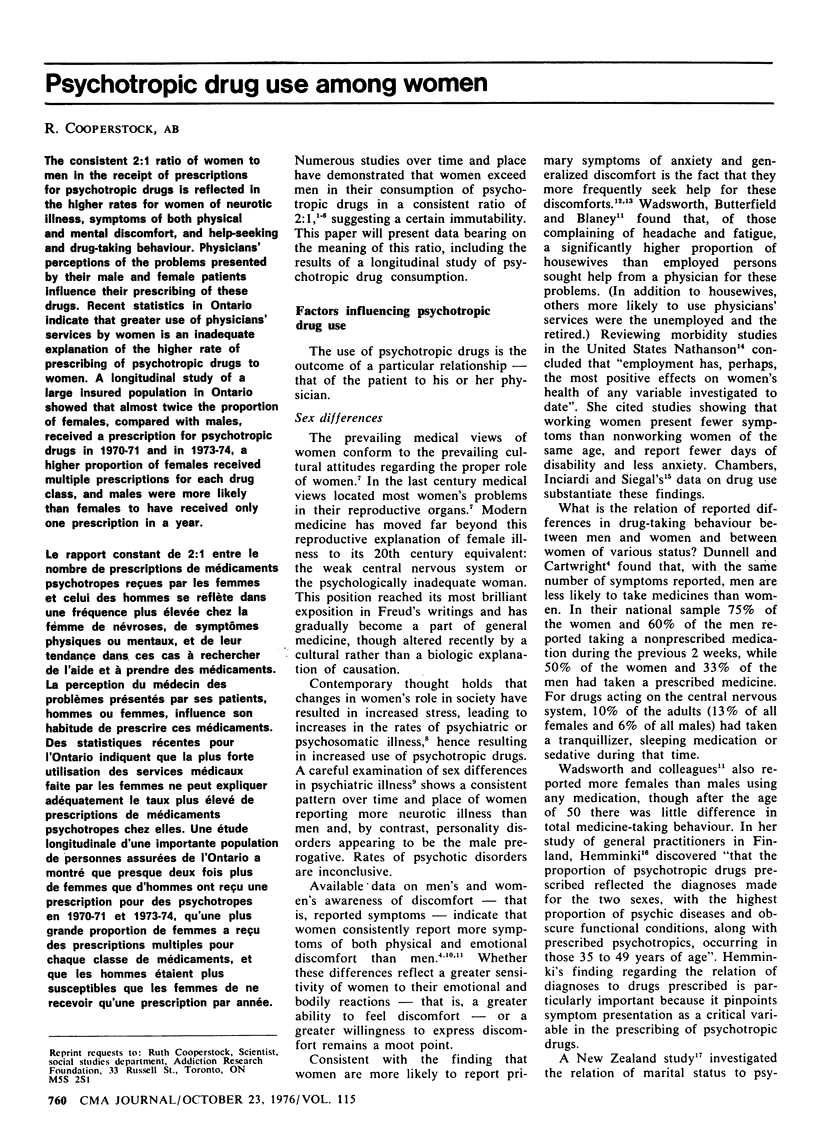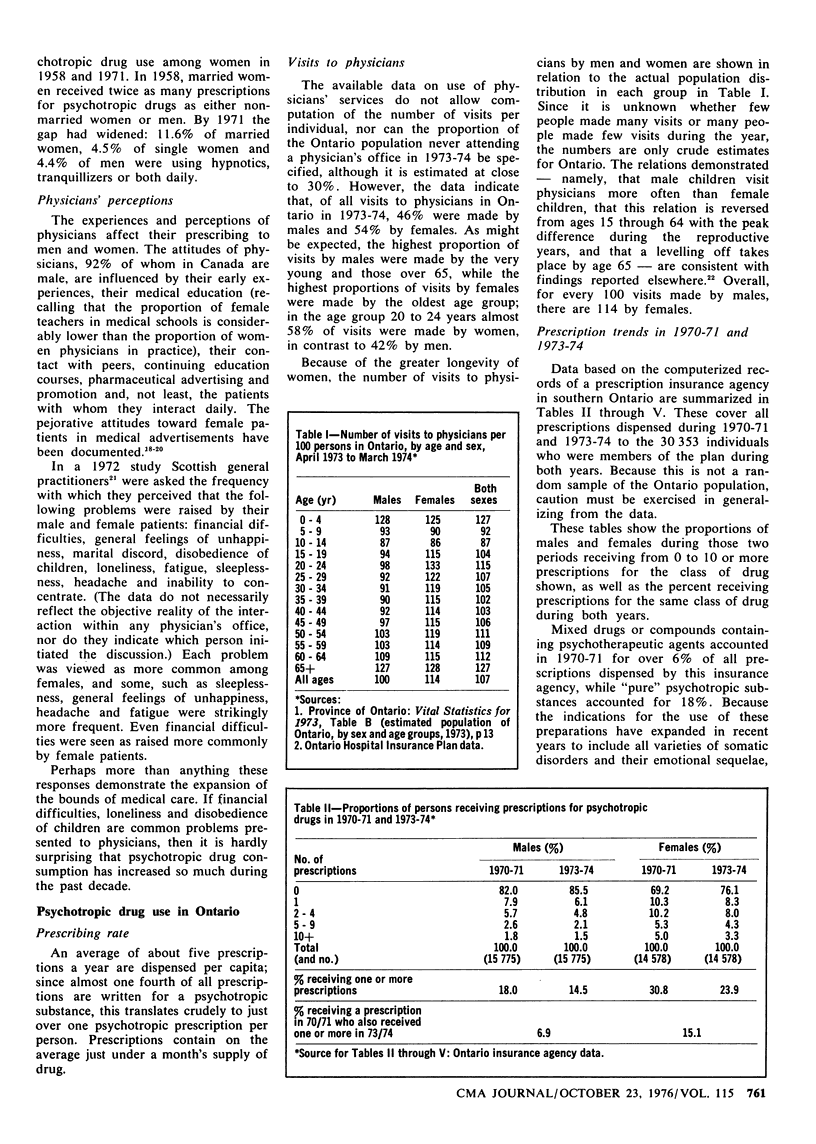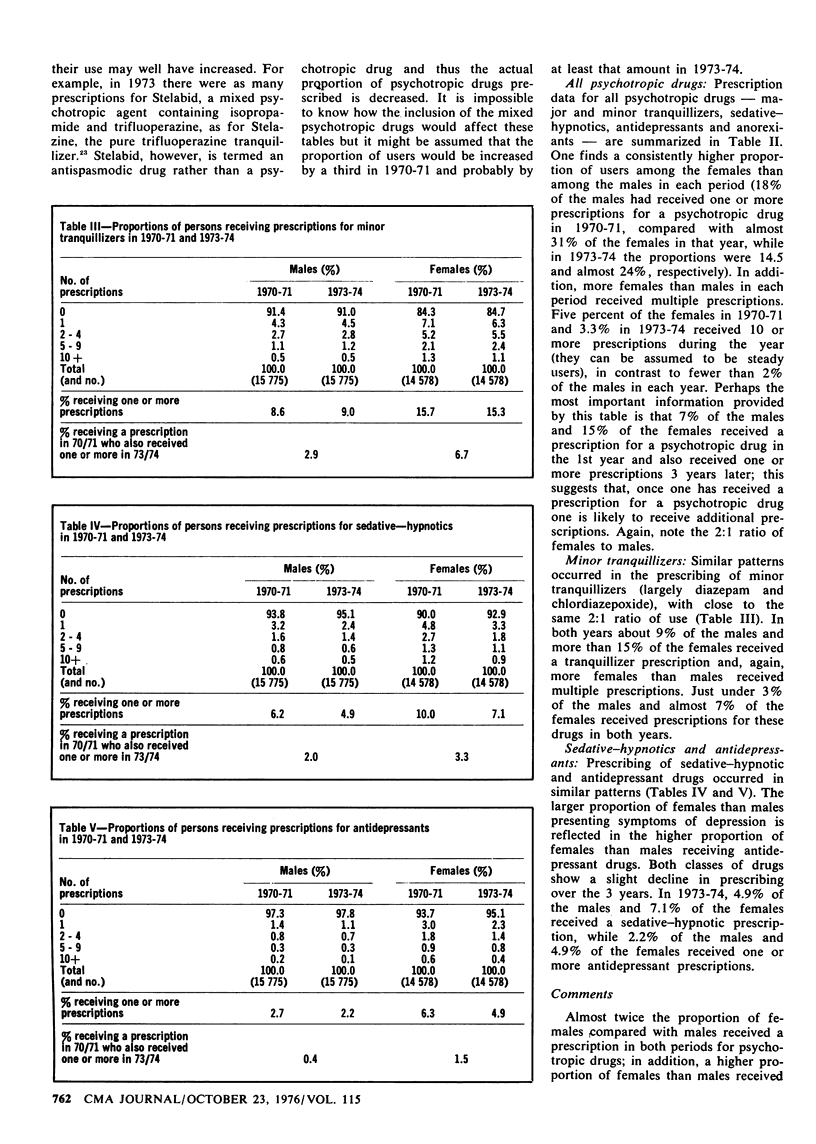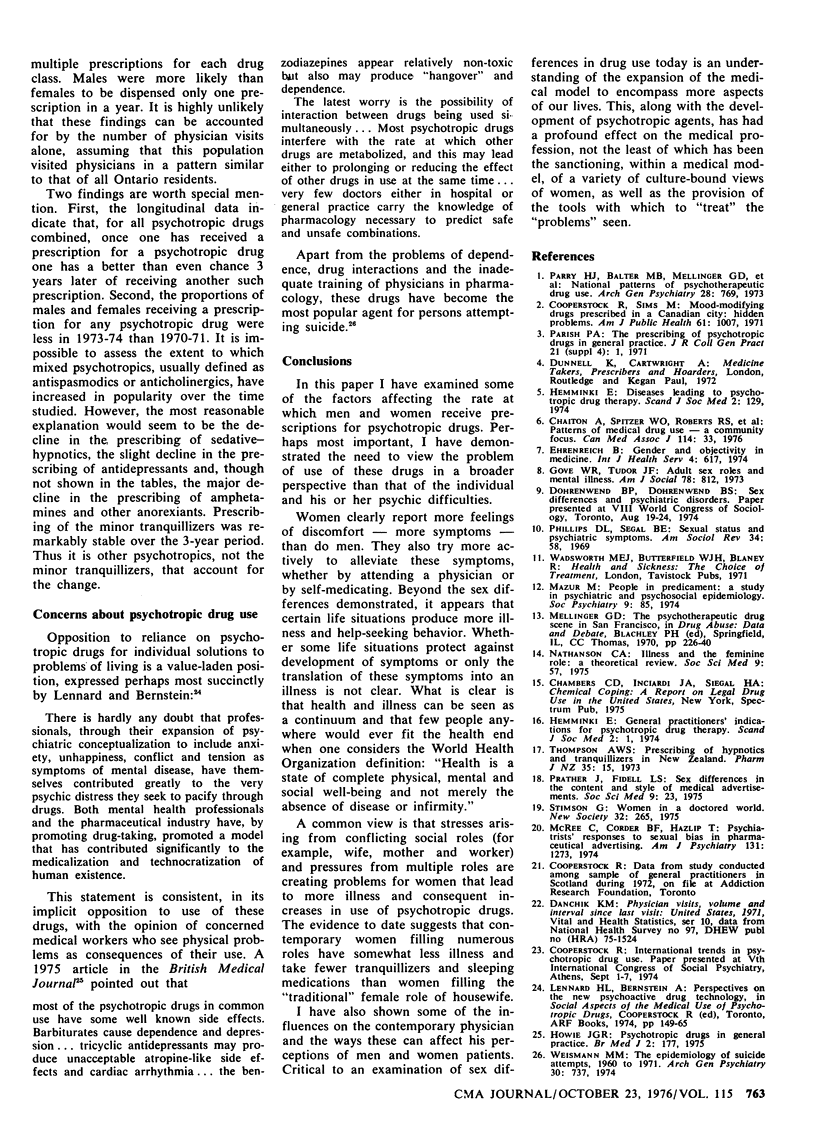Abstract
The consistent 2:1 ratio of women to men in the receipt of prescriptions for psychotropic drugs is reflected in the higher rates for women of neurotic illness, symptoms of both physical and mental discomfort, and help-seeking and drug-taking behaviour. Physicians' perceptions of the problems presented by their male and female patients influence their prescribing of these drugs. Recent statistics in Ontario indicate that greater use of physicians' services by women is an inadequate explanation of the higher rate of prescribing of psychotropic drugs to women. A longitudinal study of a large insured population in Ontario showed that almost twice the proportion of females, compared with males, received a prescription for psychotropic drugs in 1970-71 and in 1973-74, a higher proportion of females received multiple prescriptions for each drug class, and males were more likely than females to have received only one prescription in a year.
Full text
PDF



Selected References
These references are in PubMed. This may not be the complete list of references from this article.
- Chaiton A., Spitzer W. O., Roberts R. S., Delmore T. Patterns of medical drug use - a community focus. Can Med Assoc J. 1976 Jan 10;114(1):33–37. [PMC free article] [PubMed] [Google Scholar]
- Cooperstock R., Sims M. Mood-modifying drugs prescribed in a Canadian city: hidden problems. Am J Public Health. 1971 May;61(5):1007–1016. doi: 10.2105/ajph.61.5.1007. [DOI] [PMC free article] [PubMed] [Google Scholar]
- Ehrenreich B. Gender and objectivity in medicine. Int J Health Serv. 1974 Fall;4(4):617–623. doi: 10.2190/GXEH-P3T7-MBG3-LRR8. [DOI] [PubMed] [Google Scholar]
- Gove W. R., Tudor J. F. Adult sex roles and mental illness. AJS. 1973 Jan;78(4):812–835. doi: 10.1086/225404. [DOI] [PubMed] [Google Scholar]
- Hemminki E. Diseases leading to psychotropic drug therapy. Scand J Soc Med. 1974;2(3):129–134. doi: 10.1177/140349487400200304. [DOI] [PubMed] [Google Scholar]
- Howie J. G. Psychological medicine. Psychotropic drugs in general practice. Br Med J. 1975 Apr 26;2(5964):177–179. doi: 10.1136/bmj.2.5964.177. [DOI] [PMC free article] [PubMed] [Google Scholar]
- Mcree C., Corder B. F., Haizlip T. Psychiatrists' responses to sexual bias in pharmaceutical advertising. Am J Psychiatry. 1974 Nov;131(11):1273–1275. doi: 10.1176/ajp.131.11.1273. [DOI] [PubMed] [Google Scholar]
- Nathanson C. A. Illness and the feminine role: a theoretical review. Soc Sci Med. 1975 Feb;9(2):57–62. doi: 10.1016/0037-7856(75)90094-3. [DOI] [PubMed] [Google Scholar]
- Phillips D. L., Segal B. E. Sexual status and psychiatric symptoms. Am Sociol Rev. 1969 Feb;34(1):58–72. [PubMed] [Google Scholar]
- Prather J., Fidell L. S. Sex differences in the content and style of medical advertisements. Soc Sci Med. 1975 Jan;9(1):23–26. doi: 10.1016/0037-7856(75)90154-7. [DOI] [PubMed] [Google Scholar]
- Weissman M. M. The epidemiology of suicide attempts, 1960 to 1971. Arch Gen Psychiatry. 1974 Jun;30(6):737–746. doi: 10.1001/archpsyc.1974.01760120003001. [DOI] [PubMed] [Google Scholar]


